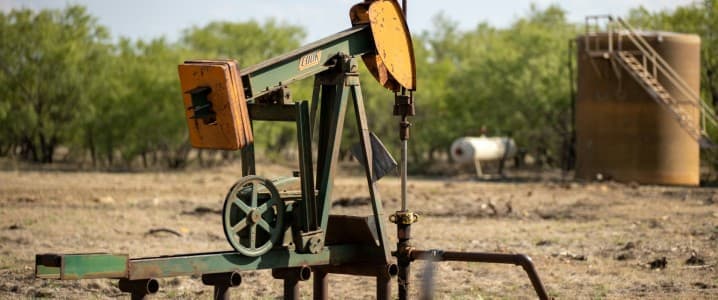Copyright OilPrice

Russian oil giant Lukoil has declared force majeure at the 400,000-barrels-per-day West Qurna-2 oilfield in Iraq after the U.S. sanctions on Russia’s top oil firms, sources familiar with the matter told Reuters on Monday. Following the October 22 U.S. sanctions on Lukoil and Rosneft, Iraq has stopped all cash and crude payments to Lukoil, according to Reuters’ sources. Last week, reports emerged that Iraq’s state oil marketing company SOMO had canceled three crude loadings from Lukoil this month after the U.S. sanctioned the second-biggest Russian oil producer last month. The three loadings from Lukoil from its production at West Qurna-2 were scheduled for November 11, 18, and 26, but Iraq apparently doesn’t want to handle the now-sanctioned barrels, market sources told Reuters last week. Lukoil has a 75% equity stake in Iraq’s giant West Qurna-2 oilfield, which produces more than 400,000 barrels per day (bpd) of crude oil. Following the U.S. sanctions on Lukoil and Rosneft, oil traders and operators globally are steering clear of any cargoes of the two biggest Russian oil firms to avoid drawing the attention of the Trump Administration and being slapped with secondary sanctions. After the U.S. sanctions on Lukoil and Rosneft, “as a result of Russia’s lack of serious commitment to a peace process to end the war in Ukraine,” Lukoil announced it would sell all of its international assets, and reached a preliminary agreement with Switzerland-based commodity trader Gunvor to sell these. However, Gunvor last week pulled the $22-billion bid for Lukoil’s international business after the U.S. Treasury Department signaled it was not happy with the deal, calling the company a Russian “puppet”. “President Trump has been clear that the war must end immediately. As long as Putin continues the senseless killings, the Kremlin’s puppet, Gunvor, will never get a license to operate and profit,” the U.S. Treasury said in an X post. With no immediate deal for Lukoil to sell international assets, West Qurna-2 being one of the biggest, the near-term production and supply from the giant Iraqi oilfield looks increasingly uncertain. By Charles Kennedy for Oilprice.com More Top Reads From Oilprice.com Swedish Industrial Giants Bet Big on Small Modular Nuclear Reactors China Car Sales Fall as Government Incentives Dry Up Shell Abandons Two Major UK Offshore Wind Projects



